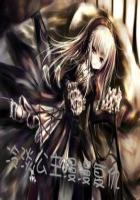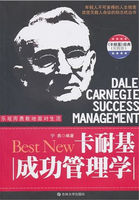"Oh, we talk a lot of nonsense," said Katharine, hiding her slip of paper as her mother stood by her, and spreading the old letter about Shelley in front of her.
"It won't seem to you nonsense in ten years' time," said Mrs. Hilbery.
"Believe me, Katharine, you'll look back on these days afterwards;you'll remember all the silly things you've said; and you'll find that your life has been built on them. The best of life is built on what we say when we're in love. It isn't nonsense, Katharine," she urged, "it's the truth, it's the only truth."Katharine was on the point of interrupting her mother, and then she was on the point of confiding in her. They came strangely close together sometimes. But, while she hesitated and sought for words not too direct, her mother had recourse to Shakespeare, and turned page after page, set upon finding some quotation which said all this about love far, far better than she could. Accordingly, Katharine did nothing but scrub one of her circles an intense black with her pencil, in the midst of which process the telephone-bell rang, and she left the room to answer it.
When she returned, Mrs. Hilbery had found not the passage she wanted, but another of exquisite beauty as she justly observed, looking up for a second to ask Katharine who that was?
"Mary Datchet," Katharine replied briefly.
"Ah--I half wish I'd called you Mary, but it wouldn't have gone with Hilbery, and it wouldn't have gone with Rodney. Now this isn't the passage I wanted. (I never can find what I want.) But it's spring;it's the daffodils; it's the green fields; it's the birds."She was cut short in her quotation by another imperative telephone-bell. Once more Katharine left the room.
"My dear child, how odious the triumphs of science are!" Mrs. Hilbery exclaimed on her return. "They'll be linking us with the moon next--but who was that?""William," Katharine replied yet more briefly.
"I'll forgive William anything, for I'm certain that there aren't any Williams in the moon. I hope he's coming to luncheon?""He's coming to tea."
"Well, that's better than nothing, and I promise to leave you alone.""There's no need for you to do that," said Katharine.
She swept her hand over the faded sheet, and drew herself up squarely to the table as if she refused to waste time any longer. The gesture was not lost upon her mother. It hinted at the existence of something stern and unapproachable in her daughter's character, which struck chill upon her, as the sight of poverty, or drunkenness, or the logic with which Mr. Hilbery sometimes thought good to demolish her certainty of an approaching millennium struck chill upon her. She went back to her own table, and putting on her spectacles with a curious expression of quiet humility, addressed herself for the first time that morning to the task before her. The shock with an unsympathetic world had a sobering effect on her. For once, her industry surpassed her daughter's. Katharine could not reduce the world to that particular perspective in which Harriet Martineau, for instance, was a figure of solid importance, and possessed of a genuine relationship to this figure or to that date. Singularly enough, the sharp call of the telephone-bell still echoed in her ear, and her body and mind were in a state of tension, as if, at any moment, she might hear another summons of greater interest to her than the whole of the nineteenth century. She did not clearly realize what this call was to be; but when the ears have got into the habit of listening, they go on listening involuntarily, and thus Katharine spent the greater part of the morning in listening to a variety of sounds in the back streets of Chelsea. For the first time in her life, probably, she wished that Mrs. Hilbery would not keep so closely to her work. A quotation from Shakespeare would not have come amiss. Now and again she heard a sigh from her mother's table, but that was the only proof she gave of her existence, and Katharine did not think of connecting it with the square aspect of her own position at the table, or, perhaps, she would have thrown her pen down and told her mother the reason of her restlessness. The only writing she managed to accomplish in the course of the morning was one letter, addressed to her cousin, Cassandra Otway--a rambling letter, long, affectionate, playful and commanding all at once. She bade Cassandra put her creatures in the charge of a groom, and come to them for a week or so. They would go and hear some music together. Cassandra's dislike of rational society, she said, was an affectation fast hardening into a prejudice, which would, in the long run, isolate her from all interesting people and pursuits. She was finishing the sheet when the sound she was anticipating all the time actually struck upon her ears. She jumped up hastily, and slammed the door with a sharpness which made Mrs. Hilbery start. Where was Katharine off to? In her preoccupied state she had not heard the bell.
The alcove on the stairs, in which the telephone was placed, was screened for privacy by a curtain of purple velvet. It was a pocket for superfluous possessions, such as exist in most houses which harbor the wreckage of three generations. Prints of great-uncles, famed for their prowess in the East, hung above Chinese teapots, whose sides were riveted by little gold stitches, and the precious teapots, again, stood upon bookcases containing the complete works of William Cowper and Sir Walter Scott. The thread of sound, issuing from the telephone, was always colored by the surroundings which received it, so it seemed to Katharine. Whose voice was now going to combine with them, or to strike a discord?














